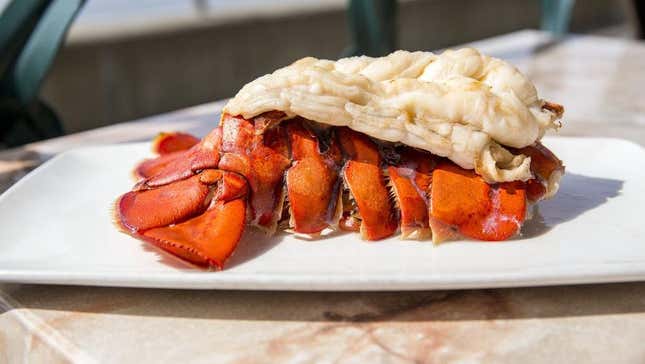
Private chefs have become TikTok’s latest object of fascination. And not just any personal chefs, but those serving millionaires and billionaires. Some of the most popular accounts document what these chefs do during the course of a workday, which can often last as long as 18 hours as they prepare breakfast, lunch, and dinner for clients and their guests. It’s a fascinating peek behind the curtain—after all, you get an intimate glimpse at how people live, as well as the benefits and drawbacks of catering to that lifestyle. The New York Times reports on the recent viral trend of private chef videos, providing a comprehensive view of what it means to work in such an environment.
The perks of being a private chef
There are plenty of things to enjoy about being a personal chef, but one of the more obvious ones is, of course, the money. The NYT notes that private chefs at the top of their game (and hired by the right clients) can earn anywhere between $200,000 to $300,000 per year, plus bonuses and benefits, along with vacation days.
Unlike a rigid restaurant job with a set menu, the role of personal chef offers some creative freedom to play around with dishes, depending on the client. And unlike a restaurant visited by hundreds of people each night, the food doesn’t have to be broadly appealing—it only has to satisfy the tastes of one person or family.
Some private chefs also get a free place to stay, like a guest room or coach house. Others might cook for clients who are on vacation, traveling along with them to to fancy locales across the globe. While all the perks of this job are highly documented on TikTok, there are also plenty of downsides that might not necessarily be obvious from first glance.
The downsides of being a private chef
Working solo can be a boon for some chefs, but laboring day after day in a kitchen by oneself can grow lonely; I’m not sure I could handle that aspect of a private chef gig. In my time as a line cook, one of my favorite things was bonding with my coworkers, either over day prep or during dinner service. Cracking jokes would relieve stress, and we could alway commiserate over a tough day after the restaurant closed, which helped me cope with the difficulties of the job.
Then there’s the time commitment. Those personal chefs who are embedded with a particular client rather than doing one-off catering gigs are often forced to be away from loved ones for long stretches of time. Being on call for someone else’s family get-togethers, holidays, and special occasions rather than your own can destroy personal relationships. (I can attest to this.)
Last-minute demands can add stress and strain. If a client decides they want to have a spontaneous dinner party for 12, then there’s a sudden flurry of shopping, prepping, and other things to take care of within hours, which would be stressful for anyone, but particularly a personal chef with few if any assistants. And since these clients are unfathomably wealthy, they can decide that they need their chef to meet them across the country for a weekend in the Hamptons right this second, and taking the red-eye flight is never fun.
Chefs told the NYT that as intimate as the relationship with a client can be, that client is still your employer, not your friend, and they’re not paying to nurture your career or help you grow. That’s a pretty delicate tightrope to be on, and any missteps are yours alone to deal with.
As a cooking gig goes, it’s not often you’ll find jobs that furnish you with lavish perks and an audience of millions. But despite the lure of that fat paycheck and luxe surroundings, it’s definitely not a job for everyone, no matter how it looks on TikTok.